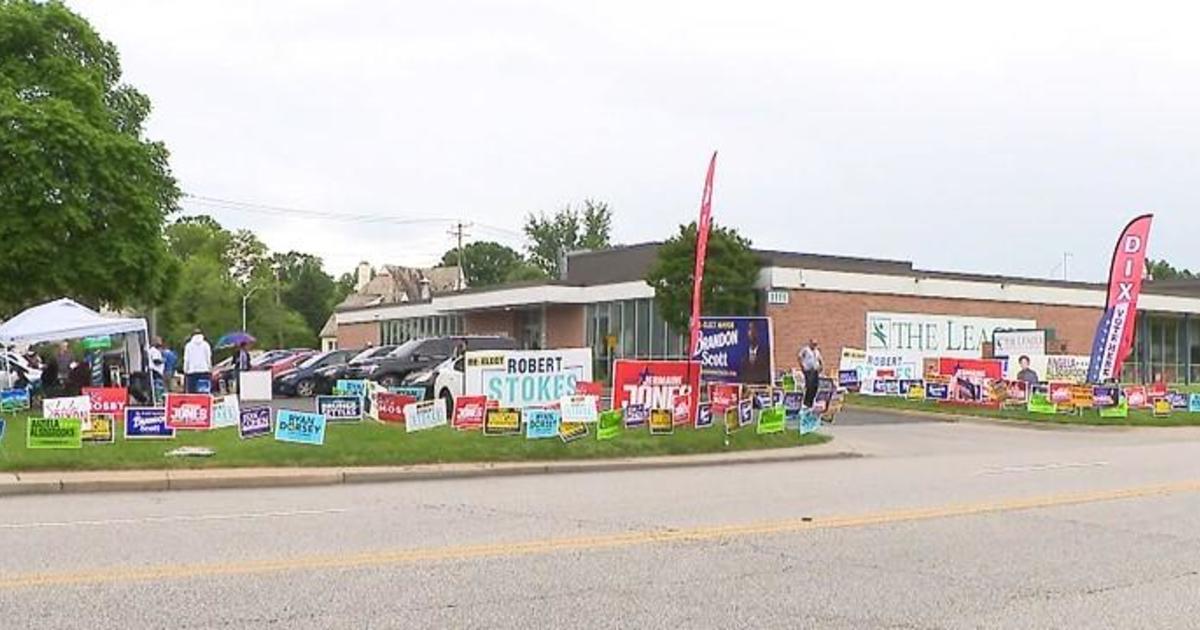Small Maryland Businesses Face Big Challenges
HAGERSTOWN, Md. (AP) -- The challenges of maintaining a mom-and-pop store in a big-box age are nothing new, but in an economy that has even giants such as Starbucks and Borders scaling back, keeping a small business alive takes hard work, creativity and sacrifice, local business owners and advisers said.
"You need to be ready to make a commitment," said Sarah Ardinger, who owns The Plum in Hagerstown with her daughter, Jennifer Kane.
"You have to be willing to always put the customer first, even if that means sacrificing your vacation, your doctor's appointment," Kane said. "It's not easy, but it is rewarding."
Alice Growden, a business consultant with the Western Maryland Small Business Development Center, said that since the downturn in the economy, she has been working with more existing businesses in addition to startups.
"They're struggling — they're challenged — with the economy and changes in what's happening in the area," she said.
The center, one of several across the state, offers small-business owners one-on-one help in areas such as business plan development, financial analysis and referrals to loan programs. The centers receive funding from the U.S. Small Business Administration and other sources and provide counseling at no charge to the small-business owners, Growden said.
The Western Maryland center is based in Frostburg, Md., but Growden, the Washington County consultant, works out of a business incubator on the Hagerstown Community College campus.
When small businesses see their sales declining, their first step should be to investigate the cause, Growden said.
Sometimes, the cause is another business offering a lower price or a better version of the product or service, but at other times, customers' wants and needs have changed, she said.
In that case, adaptation can be a lifesaver for a small business, Growden said.
"They constantly need to be focused on researching what their customers are seeking and what the need is — what the requests are — and how they can fill that need," Growden said.
Robert Startzman, founder of Startzman's Hardware on South Potomac Street, credits that approach for keeping his 52-year-old business viable as big-box stores moved into the area.
"We really haven't had a problem, because we carry a lot of other unique items besides hardware," Startzman said.
The business, across the street from Rose Hill Cemetery, sells grave decorations such as floral arrangements, wreaths and solar crosses, he said.
Other popular items include plants, barn stars, wind chimes, canning supplies and hard-to-find housewares like french fry cutters.
"Unless you expand into other lines, I can understand why you probably couldn't make it just selling hardware," Startzman said.
___
Learning to adapt
Creatively tapping into new markets, such as government procurement contracts or overseas exporting, as well as taking advantage of emerging technology, are ways small businesses are exploring to adapt to the downed economy, said Timothy R. Troxell, executive director of the Hagerstown-Washington County Economic Development Commission.
"It's still about trying to touch the customer, and new technology is one way of doing that," Troxell said. "I look at my kids. Technology is the way they do everything, so I think it must be part of the future."
Creativity and adaptation also were key for The Plum, a restaurant that has survived 31 years in a Hagerstown alley through such challenges as downtown construction projects, Ardinger and Kane said.
To weather an 18-month renovation project at the Barbara Ingram School for the Arts building and recent moves of Susquehanna Bank and Washington County Hospital, and the temporary closure of Washington County Library, the mother-daughter team established a delivery service to take food to their loyal customers who no longer work downtown, Kane said.
___
Small and smaller
Many small business still turn to the government for assistance when times get tough, Troxell said.
When experts and politicians talk about "small business," it frequently can feel as if their definition of small is a bit large, Kane said.
The definition of "small" has great range in government terms, Troxell said. In some cases, it refers to businesses of 500 employees or fewer, while in others, it can refer to businesses with only a handful of employees, he said.
Often political efforts to help "small" businesses weather a tough economy actually end up stinging very small businesses instead as those efforts seem to target the larger, small businesses, Kane said.
Competition for government assistance is stiff given the current economic situation, Troxell said. Some assistance comes with strict requirements, such as adding a set number of employees, or being a minority-owned business, that might automatically exclude some smaller business from the running, he said.
___
Customer service
Regardless of the economy, customer service is the heart, soul and backbone of a small business, said Lori Ruda, owner of Lena's of Hagerstown, a clothing boutique that has been downtown for more than 50 years.
It is what makes small businesses stand out from big-box stores, she said.
As a destination boutique, the customer's experience starts the moment one walks through the door of Lena's, she said.
"We build a rapport with each customer," she said. "We are willing to be honest and say, 'No, that does not look good,' help them find the right top or special order something in their size."
Unlike stores that strive to individualize the experience, Ruda said she works to personalize the experience for her customers.
Owners have to go beyond excellent customer service to weather the current economic challenges, said Ruda, who noted that everyone is feeling the pinch of recession.
"I just put 14 gallons (of gasoline) in my car and it cost me $56," she said. "Prices like that do not leave me or anyone with much discretionary income."
When times get tough, customers instinctively spend less, she said.
"They will buy one top or one jacket instead of an entire outfit," she said.
___
Counting pennies
Controlling inventory and having a team of supportive employees are also key for a small retail business, Ruda said.
Knowing what her customers want helps keep her inventory fresh but not overstocked, she said. It also helps control overhead, she said.
"You've got to count pennies right now," she said. "Whereas there was a time when you were counting dollars."
For a business like The Plum, which has five employees — "on a good day," Kane said — time off work is scarce and no task is too small for the owner's hands, Kane said.
"The buck stops with you," she said. "We do our own books, our own payroll, we sweep and mop the floors and take out the trash. It's not like a corporation with layers of employees to do that for you."
The work of owning a small restaurant might be hard but it is rewarding, Kane said.
"When we come to work, it doesn't feel like a job," she said. "We both love what we do, we are not stuck behind a desk all day, we are talking with customers, interacting with friends."
Lena's might be a destination shop, but Hagerstown is not quite a destination town, Ruda said.
"People say, 'I'm going to Lena's,'" she said. But few come to Hagerstown for the day to browse the shops, she said.
___
Cutting some corners
Penny Pittman, owner of Weaver's Restaurant and Bakery in Hancock, said she wasn't sure whether small businesses were hit harder than large ones when the recession hit.
"I think it's impacted us all," she said.
Pittman said the key to weathering the storm is to cut corners in ways that do not directly affect customer service or the product, such as scaling back on charitable giving.
"It's just a very different time, so you have to do business a little differently than you normally did," she said.
For a restaurant and bakery, not being part of a chain carries certain advantages, Pittman said. Weaver's has more homemade items than its corporate competitors and pays attention to detail, she said.
But as the ratio of mom-and-pop stores to national chains in the area continues to slip, it's hard for any small business not to feel threatened.
"It's a pretty scary time for all of us," Pittman said.
___
Core values
In a world where small businesses are forced to count pennies, and think outside the market to stir business, Troxell said creative efforts still must be built upon customer service, integrity and quality.
Those core values, he said, have stood the test of time.
"The economy is starting to grow again very, very slowly," he said. "I feel we are on the rebound, but I don't think this will be a quick rebound. It will be a slow process to get back to a better place. Those core values are the foundation small business must build upon to be successful."
___
Information from: The Herald-Mail of Hagerstown, Md., http://www.herald-mail.com
(Copyright 2011 by The Associated Press. All Rights Reserved.)



